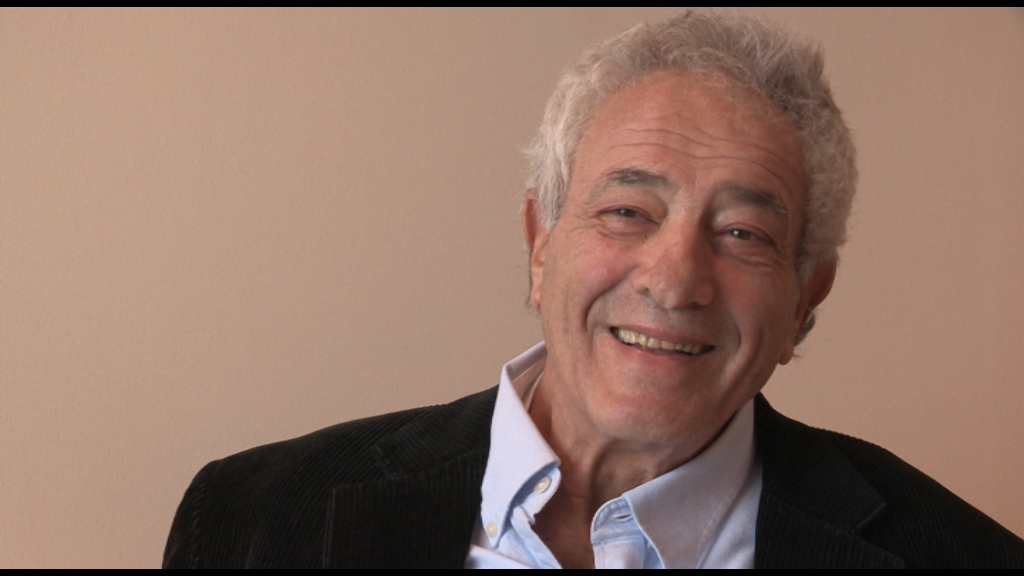NEXT STORY

Consternation at Penguin Books
RELATED STORIES

NEXT STORY

Consternation at Penguin Books
RELATED STORIES


|
Views | Duration | |
|---|---|---|---|
| 91. Issuing of the fatwa against The Satanic Verses | 15 | 03:32 | |
| 92. How misinformation fuelled resentment against The Satanic... | 17 | 03:50 | |
| 93. Consternation at Penguin Books | 15 | 04:23 | |
| 94. Fear of reprisals | 13 | 02:05 | |
| 95. Our freedoms at stake | 13 | 05:00 | |
| 96. The reality of living under a fatwa | 20 | 03:31 | |
| 97. Persecuted and victimised for defending our freedoms | 15 | 06:44 | |
| 98. Postponing publication of The Satanic Verses in... | 14 | 06:13 | |
| 99. In defence of a free society | 30 | 02:47 |

Well, it's very difficult to assess what happened, because this was the beginning of worldwide protests and the setting up of committees in many countries in defence of Salman Rushdie. Our principle, of course, was in defence of Salman Rushdie, but it was more the right of people to read this book, any book that we published and we found it much more awkward then than one would today that something that offended one group could bring forth threats of violence. I never thought that publishing was an occupational hazard. And, but we learned that perhaps anything is to people who can be moved to think one thing or another. I've already said that I think a lot of people who protested took to heart what their religious leaders said, that this book was blasphemous and that the author intended to commit a blasphemy, and that… they didn't know if that was true or not true. They didn't know if it was fiction or non-fiction. They hadn't read the book, but they were out there protesting and calling for the books interdiction and Rushdie's death.
So, when I mentioned at the outset my father said you can always rent a crowd, you can always get people's resentment and ire up so that they behave in ways that don't make any kind of objective sense. They haven't really considered the issues, they haven't really been informed. And nobody has asked them, well, you came to Britain, and Britain is a land where you can insult Moses or Jesus or anybody and not die for it.
I don't know if they had ever thought about that. Many people come to England or the United States or any other country for many other reasons other than their sophistication about the rights of man, the rights of individuals, the relationship of the individual and the state or the individual and society. They want a better life, presumably, when most people come; it's a reason to travel.
And what we discovered is, they… that many Muslims had integrated very poorly into British or American life, because they were espousing the values of their religion in respect of the way that religion was practiced somewhere else.
Peter Mayer (1936-2018) was an American independent publisher who was president of The Overlook Press/Peter Mayer Publishers, Inc, a New York-based publishing company he founded with his father in 1971. At the time of Overlook's founding, Mayer was head of Avon Books, a large New York-based paperback publisher. There, he successfully launched the trade paperback as a viable alternative to mass market and hardcover formats. From 1978 to 1996 he was CEO of Penguin Books, where he introduced a flexible style in editorial, marketing, and production. More recently, Mayer had financially revived both Ardis, a publisher of Russian literature in English, and Duckworth, an independent publishing house in the UK.
Title: How misinformation fuelled resentment against "The Satanic Verses"
Listeners: Christopher Sykes
Christopher Sykes is an independent documentary producer who has made a number of films about science and scientists for BBC TV, Channel Four, and PBS.
Tags: Salman Rushdie
Duration: 3 minutes, 50 seconds
Date story recorded: September 2014-January 2015
Date story went live: 12 November 2015